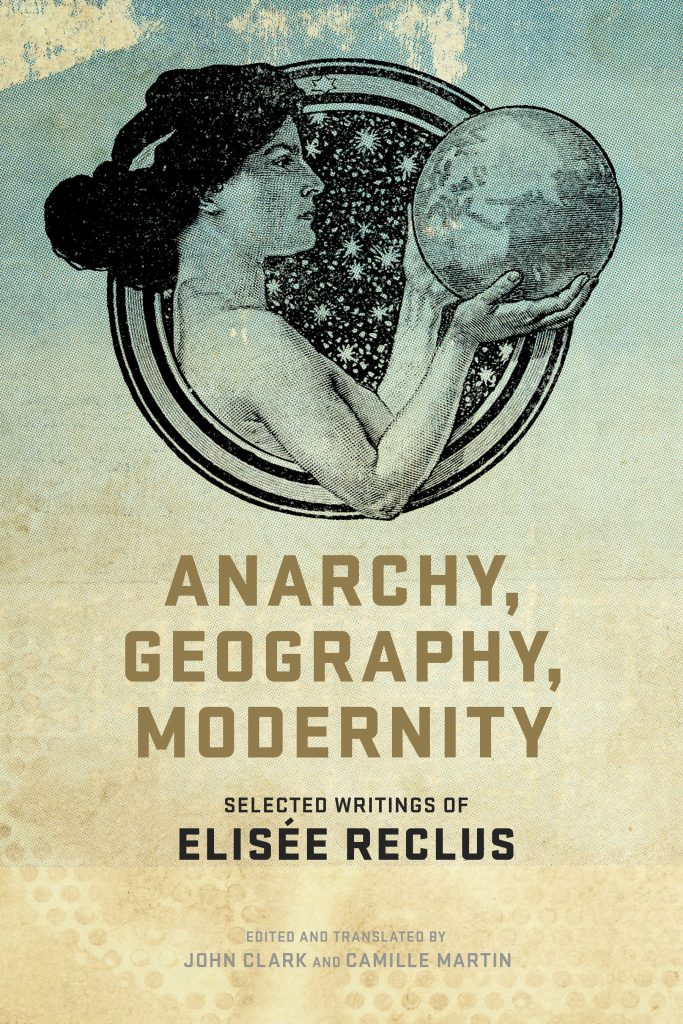by Sasha
Earth First! Newswire
October 18th, 2014
A new edition of Elisée Reclus’s works, Anarchy, Geography, Modernity, edited by the illustrious duo of John Clark and Camille Martin, provides a captivating introduction to the great anarchist’s life and works. This book will drive its readers into the most solitary spaces of reflection—whether the ocean’s rocky shoreline, the forest’s wild expanse, or the deepest reaches of the imagination. It provides a vital touchstone of time and place, a refraction that sheds light on our own ways of seeing the world.
Reclus has long been an understudied figure in the history of anarchism, so the first part of the book, taken up by Clark’s biography of Reclus, seems a welcome first step. A close friend of Bakunin and Kropotkin, it was Reclus who helped rescue, edit, and publish Bakunin’s final and greatest text, God and State. Reclus was among the insurrectionary anarchists exiled from France after participating in the Paris Commune of 1871. Reclus is also one of the greatest, most admired geographers in the world. Ever. With aspirational and voluminous texts on the world and its peoples, Reclus achieved a great milestone in the struggle to liberate scholarship from eurocentric confines.
Clark’s distillation of the major thinker’s oeuvre elicits a generous respect. A world traveler and generous intellect, Reclus carefully observed the ideas and behaviors of what he called “eco-regions” and their specific environs, contributing key insights for the growing understanding not only of environmental sciences and geography, but their effect on human societies—all during an era obsessed with progress and industry.
“Nature is for [Reclus] always an active presence, both encompassing humanity and remaining in intimate dialectical interaction with humanity throughout history,” Clark notes. In his careful reflections on Reclus’s life work, including the 19-volume The Earth and Its Inhabitants, Clark presents to the reader a deep engagement with the “convergence of reason, passion, and imagination—logos, eros, and poesis.” For its soft-spoken nature, which resonates from deep contemplation to romantic gestures of grandeur, this sort of radical thought affords the deepest contemplation on the problems with which Reclus engaged, as they ring true to this day.
This particular edition’s selection of Reclus’s work centers around Reclus’s critique of modern states and the dialectics of civilization and savagery. “A century ago,” Clark comments, “Reclus had already presciently announced an intensifying crisis of the city and diagnosed the crisis as only a symptom of the larger crisis of society.” With regards to the polis, Reclus writes, “the political unity [ensemble politique] of the social body was as simple, as undivided and as well-defined as was the unity of the individual himself.” The city becomes a performance of practical reason (Aristotle’s phronesis), as it actuates the gathering of individuals for the betterment of society. “[It] is in this sense that one must, like Aristotle, consider the human being to be par excellence the zoon politikon: the ‘urban animal,’ the participant [le part-prenant] in the organic city [la cité organique] (and not merely the ‘political animal’ as it is usually translated).” With this deeply philosophical reflection on organic politics in mind, Reclus developed the notion of eco-regions, providing significant insight into wilderness and distinct environments of other continents, finding models of organic political societies outside of and degraded by European thought.
With this introduction into European thought of ecoregions or bioregions, Reclus seeks an “evolution” of the modern nation-states beyond an unhealthy, pathological obsession with “progress.” The city, as an organic production or performance of reason, brings human society together in a political life of equality, liberty, mutual aid, and free association, but the corruption of political cunning inverts socio-organic independence, and transforms the city against nature into a divided state manifested through overconsumption and war. “It is only the free man—who of his own accord joins his strength with that of other men acting out of their own will—who has the right to disavow the mistakes or misdeeds of his so-called companions.
He takes responsibility only for himself.” As those “united with a single will” rise up against the master “so that they may be assured from that moment on of their bread and liberty,” revolution of the “free man” will liberate humanity through its growing sense of solidarity into an organic system of self-management.
As Clark notes, by today’s standards Reclus’s gendered language overshadows his activism for women’s rights and against patriarchy, but the editors’ decision to retain the atavistic lingo preserves a sense of confusing and contradictory time and place in fidelity, perhaps, to the text. For Reclus, “every new city immediately constitutes, by its configuration of dwellings, a collective organism,” and it is difficult to see how gender, race, and other identity-forming factors figure in that organism. On the one hand, it could be similar to a “historical bloc,” which is not only a collection of ideologies, but an “organic body,” according to influential leftist thinker Antonio Gramsci. On the other hand, the more mainstream socialist view promoted by Arthur Tansley of the collective unconscious as eminently connected to the ecological surrounds (i.e., the development of the concept of the “ecosystem”) might help construct a view of the possible “collective organism.” To bring things more up to date, one wants through Reclus to return to Bookchin’s ideas of social ecology and his later municipalism, and redefine radical approaches to politics by escaping the sectarianism and condemnations of the ultra-left and returning to the common ground of solidarity. But it’s not that easy; none of these trends and tendencies encompass the enormity of Reclus’s comprehensive thought.
In a way, Anarchy, Geography, Modernity goes “back to basics,” although Reclus is certainly not in favor of a homogenous approach to society. One tribute that Reclus pays to civilization is that the “civilized” maintains a “greater complexity of the elements that enter into its formation.” At the same time, the industrial cities “draped with a funeral veil” of smog appear to us far from “a future state of well-being and beauty” (both requisites for Aristotle’s organic polity), because the modern state “has to adapt to its bad environment, and in order to function, it must do so in a pathological way.” In this sense, “progress” takes on the form of degenerate habits, while the “thousands of tribes and other ethnic groupings, lumped together under the name ‘savages’ by haughty ‘civilized’ people… at least [have] the advantage of being coherent and consistent with [their] ideals.”
We have in Reclus not only a model academic and scholar compelled by field work to both the darkest and most luminous of critiques, but an anarchist and insurrectionary whose connections to other noteworthy anarchists opens up a broader understanding of anarchist perspectives on ecology. The effect is to produce a networked realization of the meaning of anarchist thought over time—not just its outcome, but its contemplative processes (what one may associate with phronesis), its relationship to the classical Aristotelian understandings of the polis and the political that throws into question the weight of philosophy that prefigured but fell short of the great anarchist ideal.
Sasha has been with the EF! Journal Collective since 2009ish, and helped found the Newswire. He has a new book out through AK Press called Grabbing Back: Essays Against the Global Land Grab.
Back to John P. Clark’s Author Page | Back to Camille Martin’s Author Page







